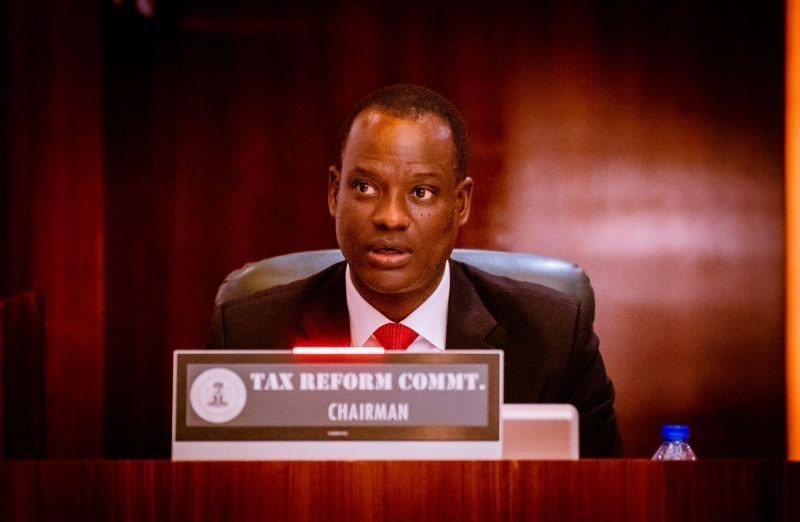Nigeria is embarking on a significant tax reform, slated for implementation in January 2026. The cornerstone of this reform is the transformation of the Federal Inland Revenue Service (FIRS) into the Nigeria Revenue Service (NRS), a change signifying a broader shift in the nation’s approach to revenue generation. According to Taiwo Oyedele, Chairman of the Presidential Fiscal Policy and Tax Reforms Committee, the NRS is demonstrably the most prepared stakeholder for this transition, actively embracing the changes and exhibiting a high level of cooperation. The government has prioritized sensitisation and planning, allowing ample time before the official launch to ensure a smooth and effective implementation of the new tax laws. A key focus of these reforms is to protect vulnerable populations and small and medium-sized enterprises (SMEs) by providing exemptions. The overarching goal is not simply to increase revenue collection, but to foster economic growth, adopt a people-centred approach, and enhance efficiency in tax administration, ultimately leading to sustainable revenue generation that can be strategically deployed to benefit the Nigerian people.
The tax reforms aim to address the deeply rooted issue of multiple taxation, a problem embedded within the Nigerian Constitution itself. Currently, local governments possess the authority to impose a wide range of taxes, some of which are deemed outdated and inappropriate for Nigeria’s present economic context. This constitutional provision has hindered previous attempts to tackle the problem through legislative changes. The reform committee is actively working with the National Assembly to propose constitutional amendments that would streamline local government taxation, allowing for more efficient revenue collection while reducing the burden on citizens. This collaborative effort seeks to create a win-win situation where citizens pay less due to closed evasion and leakage loopholes, while the government’s overall revenue collection increases.
At the Nigerian Economy Summit Group (NESG) Half-Year Private Sector Forum, the discussion centered around the theme “Staying the Course on Reforms: Turning Economic Gains into Social Progress.” While acknowledging the government’s strides in creating a more conducive business environment, participants, including NESG Chairman Olaniyi Yusuf, stressed the need for further action to solidify the economic recovery. The forum highlighted three key priorities: supporting business continuity and growth, boosting productivity and job creation, and strengthening social protection and household support. The underlying message was the importance of adapting to current conditions, making strategic investments, and collaborating with the government to shape policies that benefit both businesses and the population. The consensus was to embrace reforms not solely for economic gains, but for the broader goal of social progress.
Dr. Olusegun Omisakin, Chief Economist and Director of Research & Development at NESG, presented a report indicating economic growth with room for improvement. The NESG projected a GDP growth of 3.8% for 2025, with 4% growth anticipated in the second half of the year. Inflation was projected to reach 24.5% by year-end. A panel discussion featuring Oyedele, Dr. Toyin Sanni (Group Chief Executive Officer, Emerging Africa Capital), Omoboyede Olusanya (Group Managing Director, Flour Mills of Nigeria), Dr. Femi Egbesola (President, Association of Small Business Owners of Nigeria), and Ugoji Lenin Ugoji (CEO, C & I Leasing) emphasized the need for sustained reforms and easier access to credit financing for the private sector.
A key concern raised was the challenge faced by businesses of all sizes in accessing adequate credit and financing to scale their operations, highlighting the need for improved financial mobilization. Dr. Tayo Aduloju, CEO of NESG, underscored the importance of this issue, emphasizing the need to transform the current financial capacity into a system that supports businesses from large conglomerates to MSMEs and even nano-businesses. He stressed that beyond stabilization, the focus should be on building the capabilities of households, individuals, and businesses, indicating the need for a holistic approach to economic development.
In essence, Nigeria’s planned tax reforms represent a fundamental shift in the country’s revenue generation strategy. The focus is not merely on collecting more taxes but on creating a more equitable, efficient, and growth-oriented system. The reforms aim to alleviate the burden of multiple taxation, particularly on vulnerable populations and SMEs, while simultaneously streamlining revenue collection processes and empowering local governments. The broader economic dialogue emphasizes the importance of translating economic gains into tangible social progress through continued reforms, improved access to finance, and a concerted effort to enhance the capabilities of individuals, households, and businesses across the board. This multifaceted approach seeks to create a more robust and inclusive economy that benefits all Nigerians.


